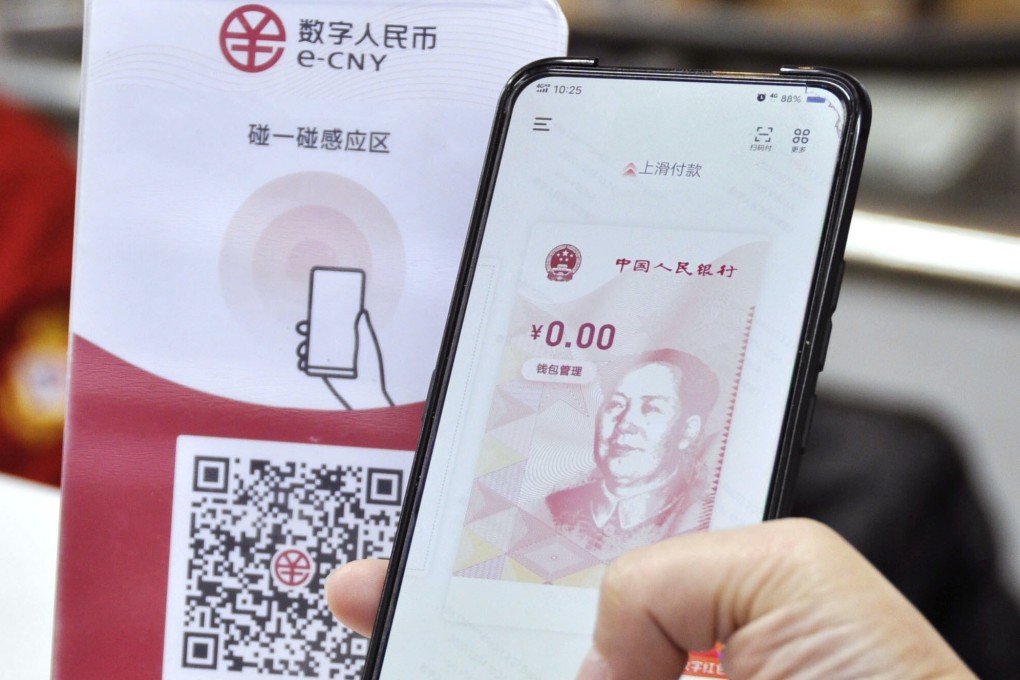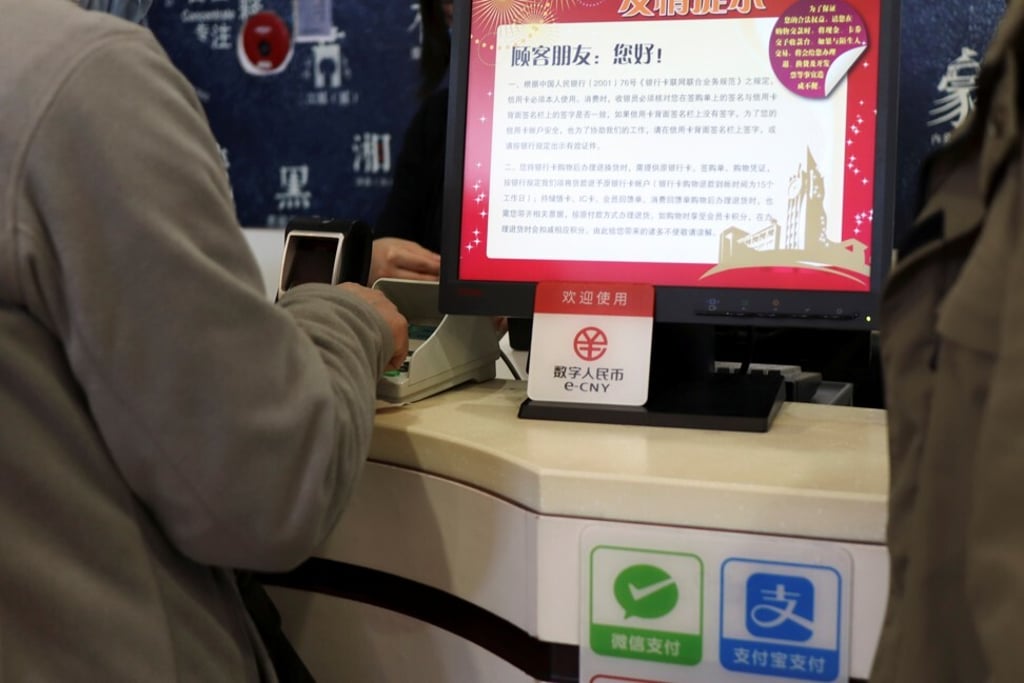Beijing is exploring digital yuan cross-border payments by joining with Hong Kong, Thailand, UAE and the Bank of International Settlements
- The People’s Bank of China is joining the Multiple Central Bank Digital Currency Bridge, a project exploring cross-border payments using distributed ledgers
- After a joint venture with SWIFT, the project is the latest step towards Beijing’s long-term goal of internationalising the yuan at the expense of the US dollar

Beijing has joined Hong Kong, Thailand and the United Arab Emirates (UAE), along with the Bank of International Settlements (BIS), to explore cross-border payments for digital currencies, a move that could potentially create a new path for China to promote the use of yuan in global payments and weaken the US dollar’s position as the world’s dominant reserve currency.
The People’s Bank of China’s (PBOC) Digital Currency Institute, the arm of the Chinese central bank in charge of minting the country’s sovereign digital currency, announced on Tuesday that it was joining the Multiple Central Bank Digital Currency Bridge, a cross-border payments project initiated by the Hong Kong Monetary Authority and Bank of Thailand in 2019, according to a press release. The UAE’s central bank joined the project at the same time.
The expansion of the project has received support from the Bank for International Settlements (BIS) Innovation Hub centre in Hong Kong, a unit created by the Basel, Switzerland-based organisation to study key financial technologies for central banks. The project was originally named Inthanon-LionRock, referencing the highest peak in Thailand and the iconic hill in Hong Kong. The new name hints at a more inclusive project that is open for others to join.
It is too early to know where the project might lead, but it aligns with Beijing’s long-term ambition to use its sovereign digital currency to boost the use of the yuan in international payments. While the proof-of-concept project is currently an alliance between just Beijing, Hong Kong, Bangkok and Abu Dhabi, backing from the BIS means it is supported by an organisation owned by 63 central banks.
According to the press release from BIS, the project is intended to use capabilities of “distributed ledger technologies” to support real-time cross-border foreign exchange transactions in multiple jurisdictions around the clock.
